Choice Cuts: Top Acoustic Songs from Bradford Cox of Deerhunter/Atlas Sound

Cutting not only a distinctive physical, but musical figure in the world of rock, Bradford Cox has for years been one of music’s most creative, enigmatic and fascinating personas.
Although his output has slowed over the last twelve months, from 2008 to 2011 Cox was on a barely comprehensible streak of creative brilliance.
With Deerhunter, the noisy ambient-punk band he fronts with equally capable singer/songwriter Lockett Pundt, and with his ongoing solo project Atlas Sound, Cox has crafted an immense, stunning body of work that truly stands alone.
Although he is probably most famous as a defender of the loud, in your face spirit of punk, and for the stunning noise-rock he has created with Deerhunter for years, Cox is equally as incredible unplugged.
Here we examine choice cuts from Cox's acoustic catalog.
1. Atlas Sound: “The Screens”
Always incredibly prolific, Cox for months would randomly drop “Virtual 7’” records recorded under the Atlas Sound moniker on his blog for free.
Get The Pick Newsletter
All the latest guitar news, interviews, lessons, reviews, deals and more, direct to your inbox!
Despite it never being on an official, physical release, “The Screens” is one of the most beautiful ballads Cox has ever written.
A lonesome harmonica wanders restlessly over the song’s beautiful acoustic playing. It’s a fairly simple song, but one that simply takes your breath away.
The way Cox commands every aspect of the track showcases his complete mastery of the art of songwriting. As a fairly obscure B-side, it’s not easy to find. But its absolutely worth the effort, a hidden treasure deep inside of Cox’s imposing discography.
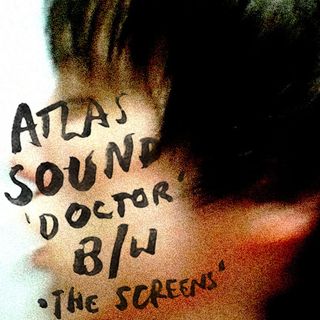
2. Atlas Sound: “Attic Lights”
Coming from Logos, Cox’s second official full-length as Atlas Sound, “Attic Lights” is a more polished display of his acoustic mastery.
As he sings “when I get to paradise/play my bass against the wind/I look down on the attic lights/I won’t be safe or tired,” Cox plays a twisty riff that never seems to repeat itself.
Evocative and beautiful, Cox brings you into his world on this wonderful track.
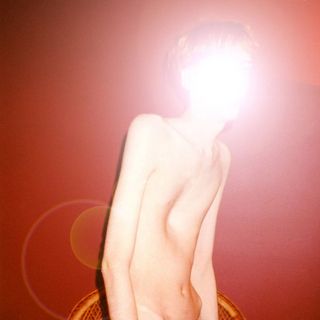
3. Deerhunter: “He Would Have Laughed”
Out of all the entries in Cox’s discography, its tough to pick one that stands above all the others. But if there has to be one, Deerhunter’s
Halcyon Digest
is a pretty strong candidate. A truly stunning album with incredible scope, it is all over the place musically.
Its closer, “He Would Have Laughed,” is its sole acoustic moment, and one of its best. A jaw-dropping, seven and a half minute tribute to Cox’s recently deceased friend Jay Reatard, Cox takes you on an amazing journey that seems to cover a million miles.
Looping a simple riff, Cox lays the groundwork for the track’s first half. He croons “I’m only bored as I get older” over the song’s driving percussion. Even as the song gracefully transforms into a blissful, laid-back, acoustic-driven march five minutes in, it is a song that is haunted by ghosts. As a tribute to a friend and fellow musician, “He Would Have Laughed” is heartfelt, desperately melancholic and deeply moving. It continues to be one of the highlights of Cox’s career.
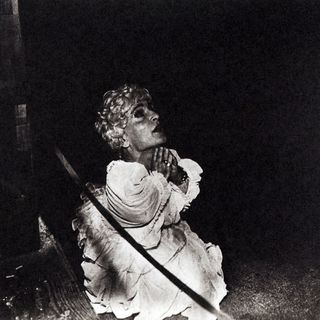
4. Atlas Sound: “Wintergreen Sketch”
To fully grasp the way Cox ticks as a musician, one should probably look at the staggering
Bedroom Databank
series. Released one by one on his blog (for free) in November 2010,
Bedroom Databank
is a four-volume collection of songs, ideas, covers, jams and little riffs Cox came up with and recorded entirely by himself in his Georgia studio.
All in all, there’s over three hours of music to uncover. And yes, some of the tracks are little more than un-developed curiosities. But an incredible amount of it is fascinating, a direct look inside Cox’s creative process.
Even with that said, it may seem ridiculous for me to include this highlight off of
Volume 2
, a track that lasts a total of thirty seconds. But in thirty seconds, Cox demonstrates what an inane sense he has for building acoustic tracks. A little riff starts the song, than comes another layer and another. Soon enough, Cox has built a lovely song with just a couple layers of acoustics. You’ll want it to last longer after he cuts the delightful little ditty after just thirty seconds.
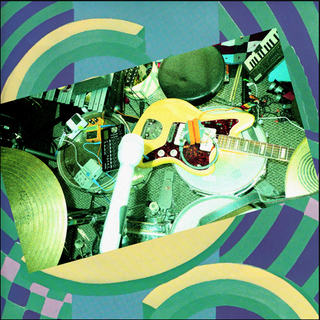
from
on
.
5. Atlas Sound: “Mona Lisa”
“Mona Lisa,” taken off of
Volume 3
, comes at the other end of the
Bedroom Databank
spectrum. A fully formed, irresistibly catchy song, Cox would later re-record it for his next official Atlas Sound album,
Parallax
.
While Cox has always been fascinated with ambiguity and noise in music, “Mona Lisa” brings his pop sensibilities right to the fore. And boy oh boy can he write a mean pop song.
Placed alongside the beautiful instrumentals that also occupy the Bedroom Databank series, “Mona Lisa” shows Cox’s amazing versatility.

6. Atlas Sound: “Amplifiers”
Released in late 2011,
Parallax
is Cox’s most recent Atlas Sound effort to date. It is also his most polished and seasoned record overall.
But none of the studio gloss that Cox uses on
Parallax
dilutes his songwriting talent. “Amplifiers” is a hushed, unassuming beauty of a song.
He never puts a foot wrong, driving the song along with a simple but urgent acoustic riff.
Coupled with quiet doubling of the riff on the bass, “Amplifiers” creeps onto you, surprising you with its brilliance.

Jackson Maxwell is a freshman at the University of Massachusetts Amherst. He is double majoring in history and journalism. He is an editorial assistant at the Massachusetts Daily Collegian and has his own music blog entitled "Broken Drums." You can follow him here at http://broken--drums.tumblr.com/ or themotorcade.tumblr.com.
Jackson is an Associate Editor at GuitarWorld.com. He’s been writing and editing stories about new gear, technique and guitar-driven music both old and new since 2014, and has also written extensively on the same topics for Guitar Player. Elsewhere, his album reviews and essays have appeared in Louder and Unrecorded. Though open to music of all kinds, his greatest love has always been indie, and everything that falls under its massive umbrella. To that end, you can find him on Twitter crowing about whatever great new guitar band you need to drop everything to hear right now.
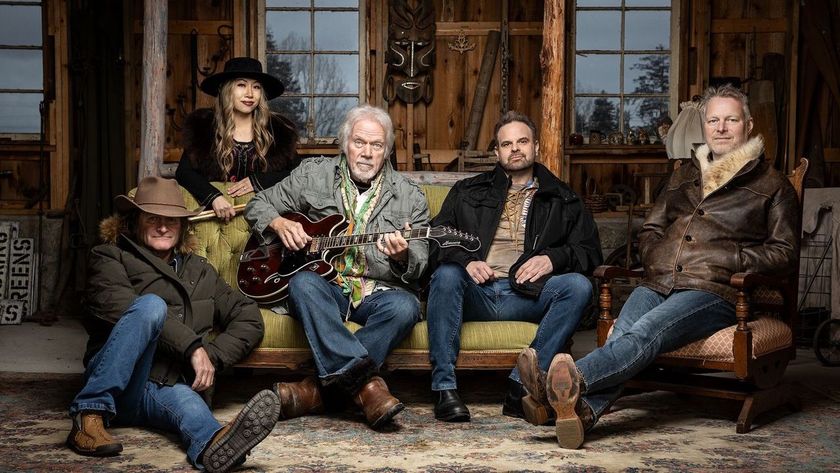
"The BTO sound is BACK!!" Bachman-Turner Overdrive release first new material in over 25 years – and it features a Neil Young guitar solo
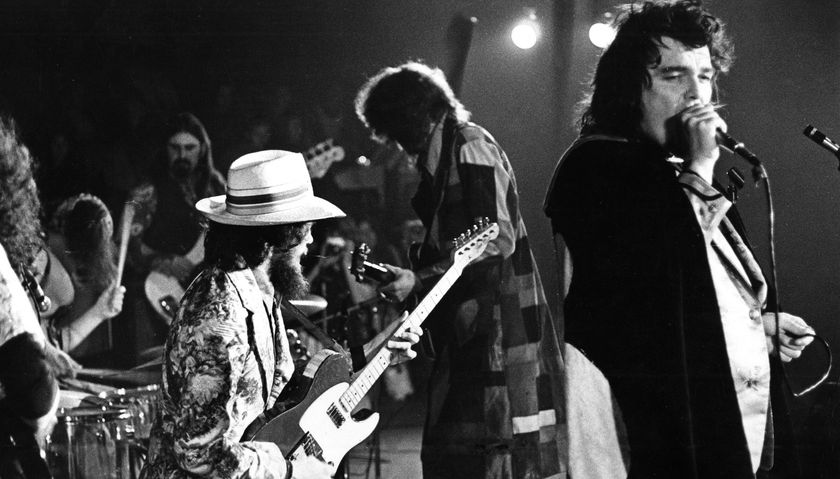
“He would beat the crap out of the guitar. The result can best be described as Jackson Pollock trying to play like John Lee Hooker”: Aggressively bizarre, Captain Beefheart's Trout Mask Replica remains one of the craziest guitar-driven albums ever made










